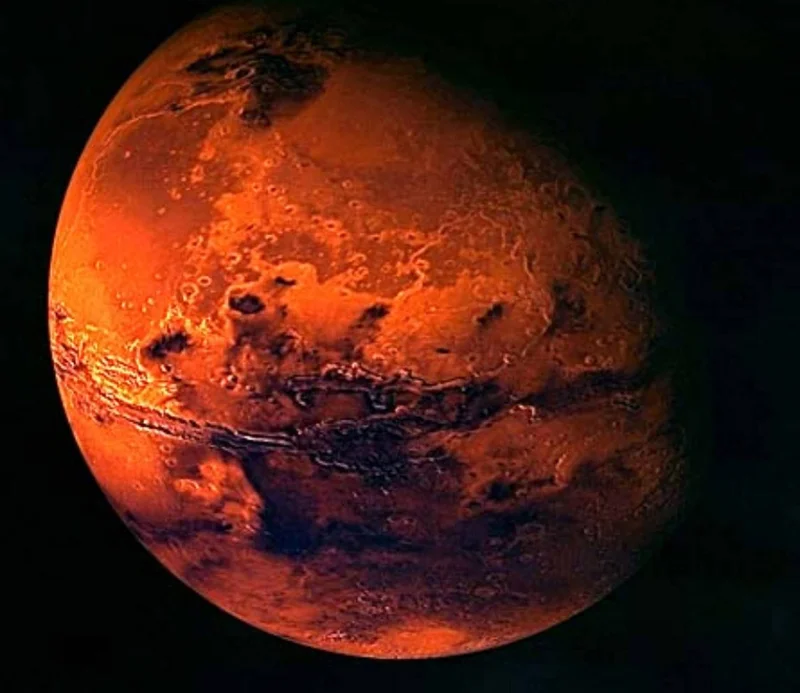Mars' Mysteries Unveiled: Life, Rovers, and NASA's Discoveries
Okay, folks, buckle up, because we're about to dive into something truly mind-blowing. You know I don’t usually get this excited, but the latest news coming out of NASA… well, it’s the kind of stuff that makes you remember why space exploration is so vital.
Right now, Perseverance, that incredible rover we sent to Mars, is doing its thing – trundling across the Martian surface, analyzing rocks, and collecting samples. We're talking about rocks from Jezero Crater, a place that billions of years ago was a lake, a potential haven for life. And Perseverance has found some seriously promising stuff, like the Cheyava Falls rock, speckled with iron-rich minerals that on Earth, would scream "microbes lived here!". If we can get that rock back to Earth, we could finally answer the question that’s been driving us for decades: was there ever life on Mars?
The Stakes Are Higher Than You Think
But here's the kicker: the Mars Sample Return (MSR) mission, the one designed to bring those precious samples back home, is on the chopping block. Yeah, you heard me right. There's talk of canceling it, all because of budget concerns. I read one headline that called the mission "financially unstable." Financially unstable? Are you kidding me? We're talking about potentially rewriting the textbooks here! NASA’s Mars Sample Return Mission in Jeopardy as U.S. Considers Abandoning Retrieval
Look, I get it. Space missions are expensive. But think about the Apollo program. Think about the sheer inspiration that sparked. Think about the technological leaps that came out of it. MSR is that kind of mission. It's not just about finding life on Mars – although, let's be honest, that would be HUGE. It’s about understanding the very building blocks of life, about figuring out why Earth became the oasis it is, and why Mars went the other way.
Imagine this: We analyze those Martian rocks, and we find evidence of past life. What does that tell us? It tells us that life isn't some freak accident, some one-off event that only happened here. It tells us that life is possible, maybe even common, throughout the universe. That changes everything. Suddenly, we're not alone. Suddenly, the cosmos feels a whole lot less empty.
And it's not just about life. The samples could also unlock the secrets of Mars's past. Why did it lose its magnetic field? Why did its atmosphere disappear? Understanding those processes could give us vital clues about the future of our own planet. It's like studying a cautionary tale written in red dust.
Now, I know what some of you are thinking: "Aris, you're getting carried away. It's just rocks." But it's not just rocks. It's a chance to understand our place in the universe. It's a chance to inspire the next generation of scientists and explorers. It's a chance to answer some of the biggest questions humanity has ever asked. When I first read about the potential biosignatures in the Bright Angel samples collected by Perseverance, I honestly got chills. This is the kind of scientific endeavor that reignites the fire of discovery.

NASA put out a call for cheaper, commercial approaches to getting the samples back. Peter Beck, CEO of Rocket Lab, thinks his company can do it for $4 billion and have the samples back by 2031. That's the kind of can-do attitude we need!
We've been working toward this goal since the 1960s, when the first scientists started dreaming of bringing Martian rocks back to Earth. We've sent rovers and orbiters to scout the planet, we've painstakingly collected these samples, and now we're on the verge of throwing it all away? That's insane!
Perseverance has collected dozens of rock samples. The Cheyava Falls rock “has our first confident detection of organic matter,” says Perseverance’s project scientist Kenneth Farley of the California Institute of Technology. The rock’s blotches and speckles “could be associated with ancient Martian life,” Farley says. “It is the most interesting sample in our entire collection.” We are so close!
Of course, there's an ethical dimension to all of this. If we do find life on Mars, what are our responsibilities? Do we have the right to interfere with it? Do we need to protect it? These are tough questions, but they're questions we need to start thinking about now.
And let's be real, there's a chance we won't find anything. There's a chance those rocks will turn out to be just… well, rocks. But even if that happens, the knowledge we gain from studying them will be invaluable. We'll learn more about the formation of planets, the evolution of solar systems, and the limits of life itself.
We need to finish what we started. We need to bring those samples home. The information they hold is too important to leave languishing on Mars. It's time to tell Congress that this mission is worth fighting for. It's time to remind them that sometimes, the greatest investments are the ones that don't have an immediate payoff, the ones that push the boundaries of human knowledge and inspire us to reach for the stars. This isn't just about Mars. This is about our future.
